Seattle’s message to Atlanta about Amazon HQ2: ‘Be prepared for growth’
SEATTLE — Travis Nguyen sees both the good and the bad with Amazon.
Nguyen works in an auto repair shop in the shadow of Amazon’s Day 1 tower, where CEO Jeff Bezos keeps his office. Amazon has helped make Seattle more diverse and created tens of thousands of jobs, Nguyen said, and Washington state’s tech industry produces many times more.
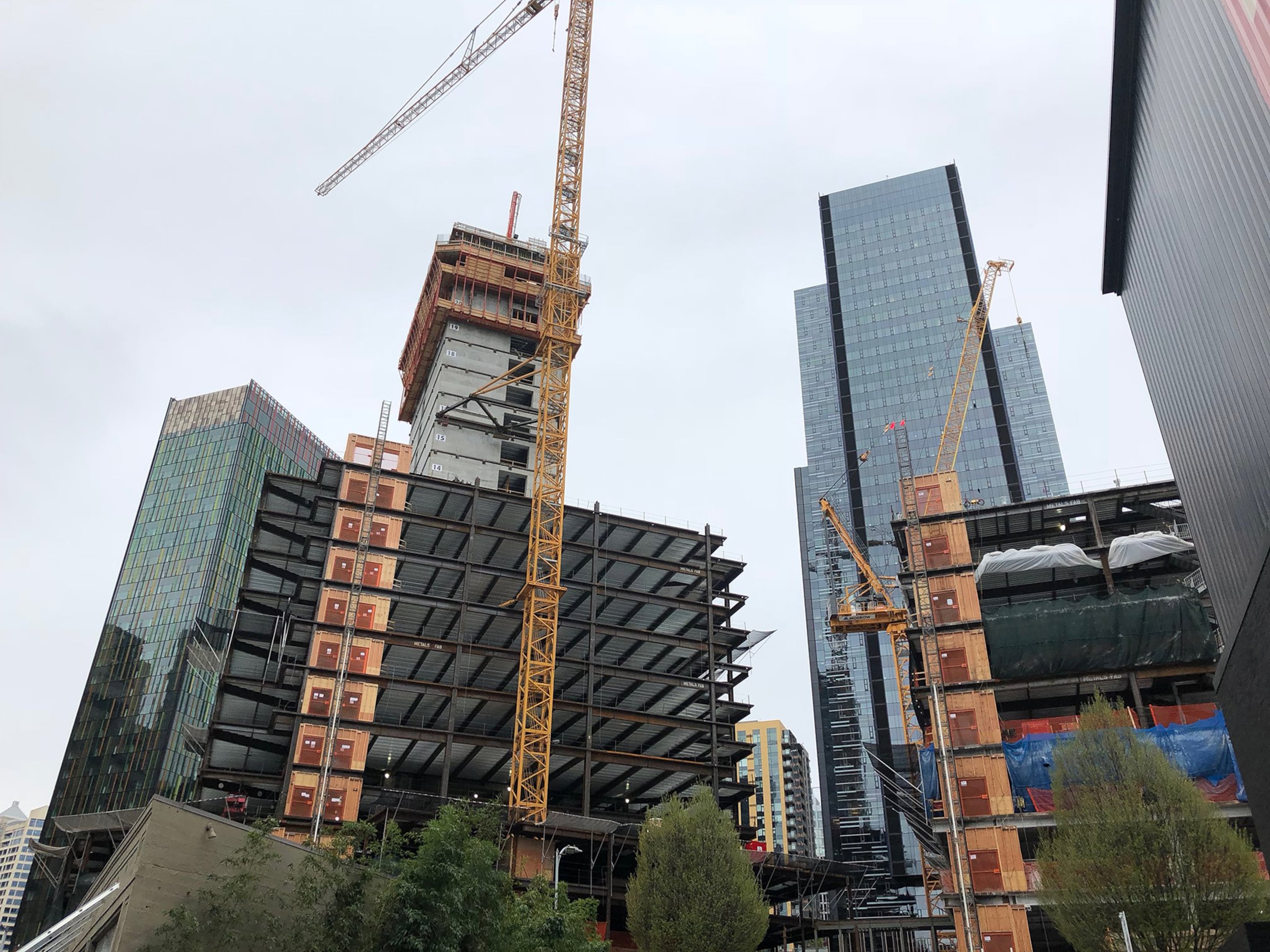
But with Seattle’s explosive tech boom have come soaring housing costs, clogged roads and strains to other vital infrastructure. There’s also a brooding sense among many like Nguyen, who don’t work in technology, that the high wages and billions in corporate investments have put the squeeze on folks who are on the outside looking in.
His advice to metro Atlanta should the region win Amazon’s second headquarters and the promise of 50,000 high-paying jobs? “Just be prepared for growth and fast growth,” he said.
Seattle’s tech community, which is much broader than Amazon, has been a double-edged sword for the Emerald City. It’s produced vast amounts of wealth and revitalized neighborhoods across the city. But that prosperity also exacerbated income inequality, turbocharged displacement and contributed to nightmarish traffic and high rates of homelessness, observers say.
HQ2 is arguably the nation's biggest jobs prize in a generation, pitting job-hungry states against one another in an Olympics-like chase for one of the world's most admired companies.
Seattle political and community observers say metro Atlanta and Georgia policymakers need to grapple with the fact that if HQ2 comes to Atlanta, it will not only create jobs that will potentially uplift generations of Georgians and cement the region as a global business capital, but HQ2 also risks putting unanticipated strains on the fabric of any winning community.
Anticipating the strains, they say, and planning ahead in Atlanta could avoid some of Seattle’s problems and make an Amazon win even more of a victory.
Seattle nurtures a giant
For decades, Seattle not only crafted its own tech scene, but the region also served as Silicon Valley’s relief valve.
Cheaper housing, superb quality of life, schools like the University of Washington and a contagious can-do Pacific Northwest spirit combined to make Greater Seattle a low-cost rival to California. Entrepreneurs like Bezos flocked to this verdant slice of the Northwest for an ecosystem that nurtured Microsoft, Expedia and Amazon.
Greater Seattle also wooed such names as Adobe, Facebook and Google to plant outposts here.
Amazon’s need for HQ2 came about because Amazon senses that it is reaching the limits of what Seattle can do to meet its workforce needs.
“Your human capital is key to your growth prospects,” said Josh Olson, a technology analyst who follows Amazon for investment firm Edward Jones. “Without a good source of recruitment, if you are talent-based business, that can be a challenge to grow if you need to grow.”
And has Amazon grown.
Amazon was born in 1994 as an internet bookseller in the garage of a small house Bezos rented in the suburbs. It went public in 1997 and over the next two decades expanded to sell almost every product imaginable, as well as produce movies and television shows. Amazon is also a critical part of the global internet backbone through its profit engine, cloud computing business Amazon Web Services.
Out of that garage, Amazon eventually took up offices in a small red stone building on Second Avenue near a heroin needle exchange in what was then a seedy stretch of downtown.
Today, the old Second Avenue office is vacant, and developers have transformed the area into posh offices and high-rise condos priced in the millions.
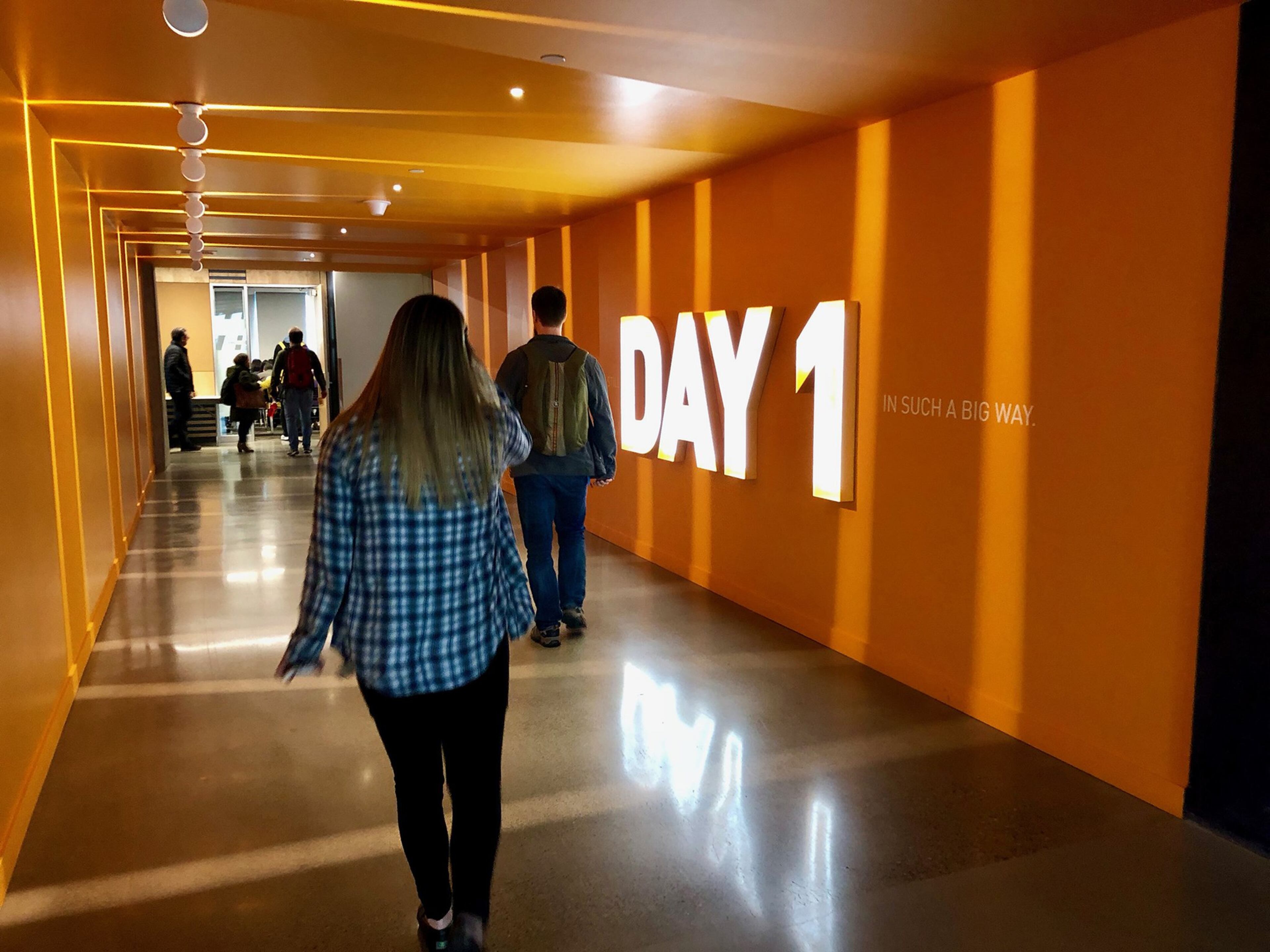
As Amazon built up, it ultimately took over a former military hospital in Seattle’s Beacon Hill neighborhood. Still, Amazon needed more space.
By 2007, Amazon embarked on expansion in South Lake Union, partnering with Microsoft billionaire Paul Allen to build a campus in what had been an underdeveloped warehouse district north of the city’s downtown.
Amazon’s unbridled growth replaced the loss of Washington Mutual, a bank whose demise led to empty office buildings and sapped spending in nearby businesses, said Jon Scholes, president and CEO of the Downtown Seattle Association.
Since 2010, downtown has added about 60,000 jobs — mostly from Amazon, Scholes said.
Today, Amazon occupies space in more than three dozen buildings in downtown Seattle. From sales of $511,000 in 1995, Amazon reported $178 billion in sales and $3 billion in profit in 2017.
Amazon now employs about 45,000 workers in the Regrade and South Lake Union neighborhoods of downtown. The company owns or leases more than 8 million square feet of offices, and Amazon has announced it’ll grow to more than 12 million square feet in the years ahead.
Amazon did not grant interviews about HQ2, but did provide a tour of parts of its campus.
The two tallest towers — Doppler and Day 1 — and the company’s arboretum known as the Spheres, are monuments to innovation.
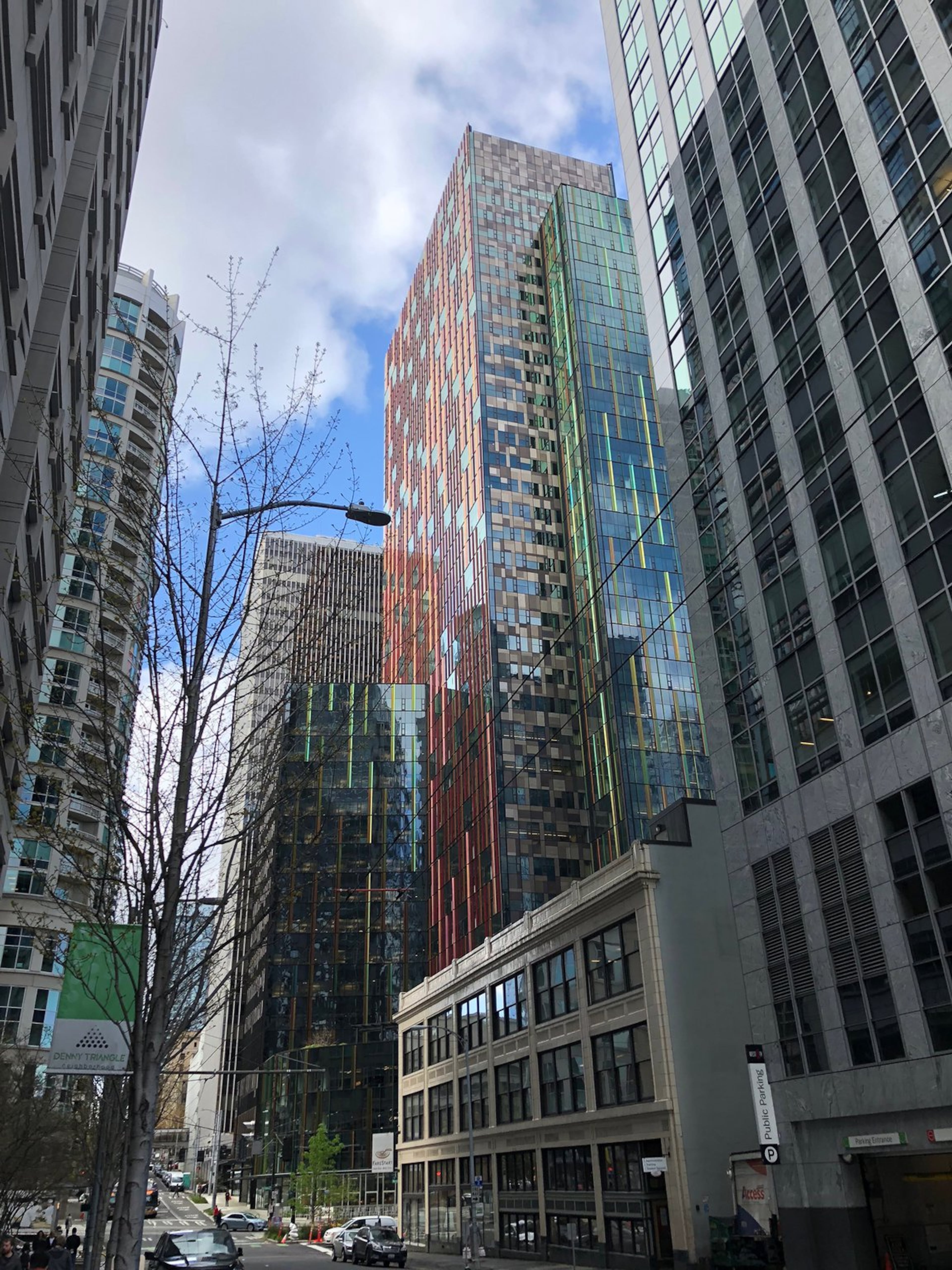
A nearby data center heats and cools the structures, and the campus is designed with few offices and more meeting space for spontaneous interaction to spur collaboration. Amazon partnered with a food service nonprofit known as FareStart, which helps jobless and homeless people find work in the industry, and built cafes and restaurants in its buildings that are open to the public, to encourage workers to be part of the community.
South Lake Union shares some similarities with south downtown Atlanta. It was an underused stretch of low-slung warehouses, brick store fronts, auto shops and small businesses just north of downtown where Allen saw opportunity.
Twice in the 1990s, Allen backed a plan for taxpayers to help fund Seattle’s version of a Central Park that he’d surround with a biotech hub. Twice, voters turned him down.
Today, South Lake Union — minus the giant park — is the land of Amazon. The warehouses and parking lots have been replaced by mid-rise glass and steel office towers and apartment buildings. There’s even a streetcar.
‘An urban manifesto’
On a drizzly Monday, cyclists battled rain drops and the splash from buses along Westlake Avenue. It was simple to spot the Amazon workers — largely millennials sporting backpacks and Amazon lanyards around their necks. Others walked the streets with their dogs.
The majority of Amazon HQ1 workers walk, ride a bike or take transit.
Mike McQuaid, a public affairs executive in Seattle and a former Amazon employee, calls the revitalization of South Lake Union “the most significant urban revitalization effort in America today.”
An area of nearly three-dozen city blocks, South Lake Union sort of resembles Midtown Atlanta’s Technology Square, only on steroids, with block-after-block of mid-rise office buildings or apartments over ground-floor retail.
McQuaid said Amazon has been an unabashed benefit to the city and will be a partner to help tackle issues surrounding growth.
The company backed the transit tax, and ultimately new light rail lines will crisscross the city, including through South Lake Union.
Atlanta’s central core and Seattle’s are quite different. Atlanta’s downtown and Midtown aren’t as dense as downtown Seattle. Atlanta also isn’t quite as walkable and compact, and not as many people live in the city’s central jobs center.
But what Amazon found in South Lake Union could be replicated in south downtown Atlanta, the Gulch or Midtown. Amazon's campus isn't a cloistered office park, walled off from the rest of downtown, it's scattered here and there, very much knitted into the city.
Bezos could have chosen a suburban path, Scholes said, but that wasn’t what fit into his company’s culture.
Amazon’s request for proposals to cities for HQ2, Scholes said, “reads like they’re evangelizing for great urban spaces.”
“It’s an urban manifesto,” he said.
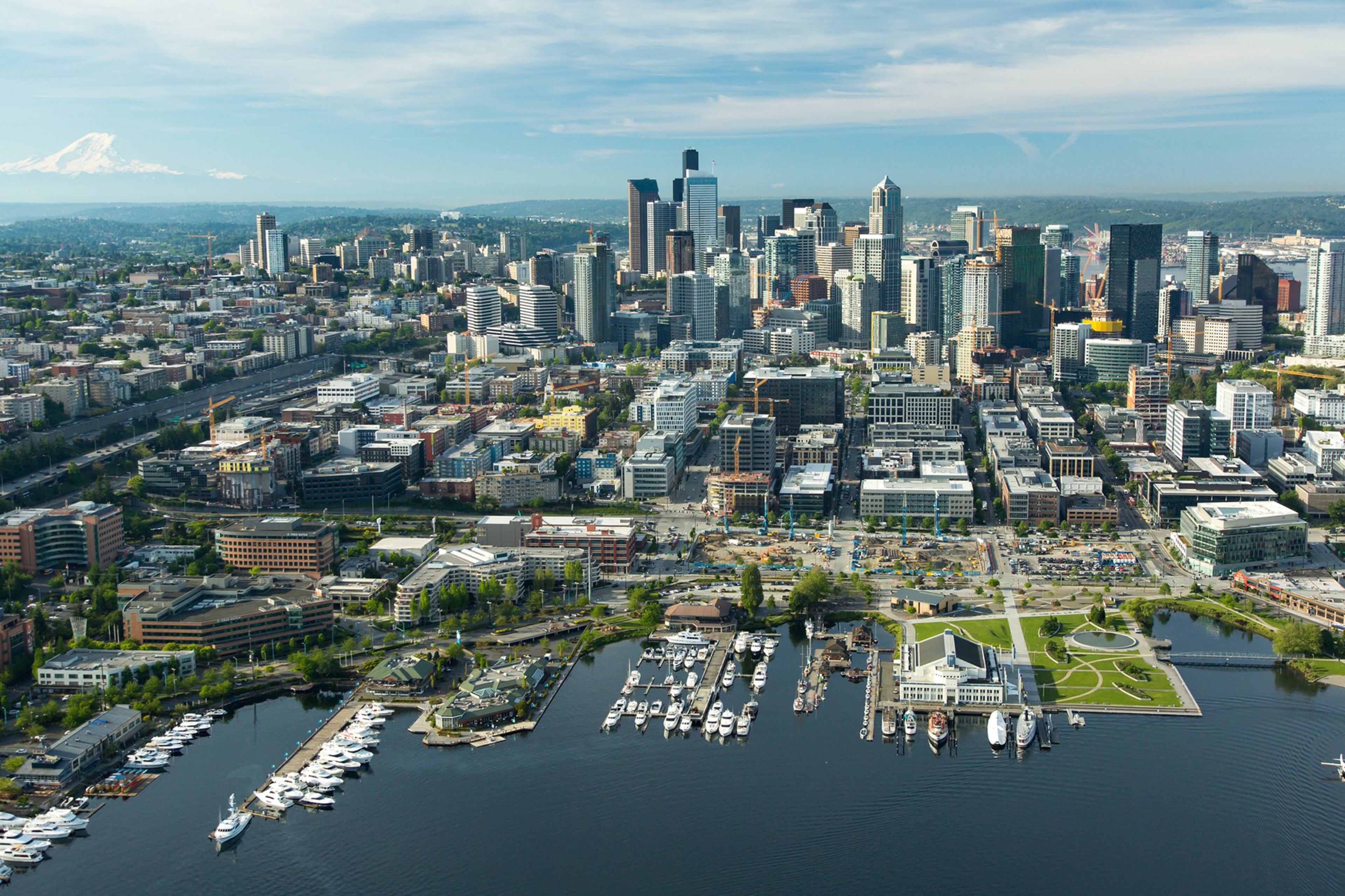
Strains of growth
Seattle has seen some of the steepest home price and rental increases in the country, and gridlock so vexed the city that residents approved a mammoth $54 billion transit expansion plan. Like many tech cities, homelessness is rampant.
Maud Daudon, who formerly served as CEO of the Seattle Metropolitan Chamber of Commerce, said Amazon and the tech community’s benefits to Seattle outweigh the challenges.
“The hardest part is living through this point in time,” she said. “The transit issues and the housing issues.”
Nguyen, who works at the auto shop in the shadow of the Day 1 tower, said he has friends who work for Amazon. The company pays high wages and offers great benefits.
But the average wage of tech workers in Seattle is more than twice the wage of the typical resident.
Nguyen lives in a four-bedroom house with three roommates. Buying a home, he said, is too expensive.
“There are so many people who are moving to Seattle, it’s becoming so competitive,” he said.
Median home prices have more than doubled in Seattle to $773,000 since 2012, and the median rent is nearly $2,600, according to Zillow.
“When Amazon comes many people in Atlanta will no longer be there,” said Jeff Shulman, a marketing professor at the University of Washington who hosts the Seattle Growth Podcast.
The housing crisis pummeled home values in metro Atlanta, but prices have since surpassed pre-recession peaks, while rents have soared amid a boom in luxury apartment development.
Shulman said some will leave Atlanta because of displacement and cost of living. Others will go because they might feel the loss of the community they once knew.
The influx of newcomers will also strain Atlanta schools and hospitals. The winning city will need more cops and firefighters. It will also bring new infrastructure spending and new opportunity.
But whether Seattle is better off, Shulman said, “depends on who you ask.”
Knute Berger, a longtime Seattle journalist, said cops and teachers often can’t afford to live in what has long been a solidly middle-class city.
The high cost of living puts more at risk of being on the margins of society as the social safety net nationally has eroded.
“Nobody wants to bitch about prosperity, but it’s changed Seattle fundamentally,” Berger said.
‘Don’t make that mistake’
Filmmaker Inye Wokoma grew up in Seattle and graduated from Clark Atlanta University. He’s chronicled the changes in the Central District, or CD, an historic African-American neighborhood.
Gentrification started in the 1980s, well before Amazon’s growth, he said, and today, the CD is only about 10 percent black.
“The most pressing issue we are facing in our time is development,” he said. “People are scrambling for a place to live and it’s not going to be in Seattle.”
Gentrification is an issue Atlanta knows well. Development along the Beltline’s eastside trail and in the Old Fourth Ward have pushed many longtime residents out, and though the city and nonprofit groups are working to mitigate displacement, many fear the development of the new Mercedes-Benz Stadium and future Beltline segments could exacerbate the problem.
“Atlanta has a small center city compared to the metro area, there’s a lot of demand for walkable trendy neighborhoods particularly concentrated in the central city,” said Dan Immergluck, a housing expert at Georgia State University.
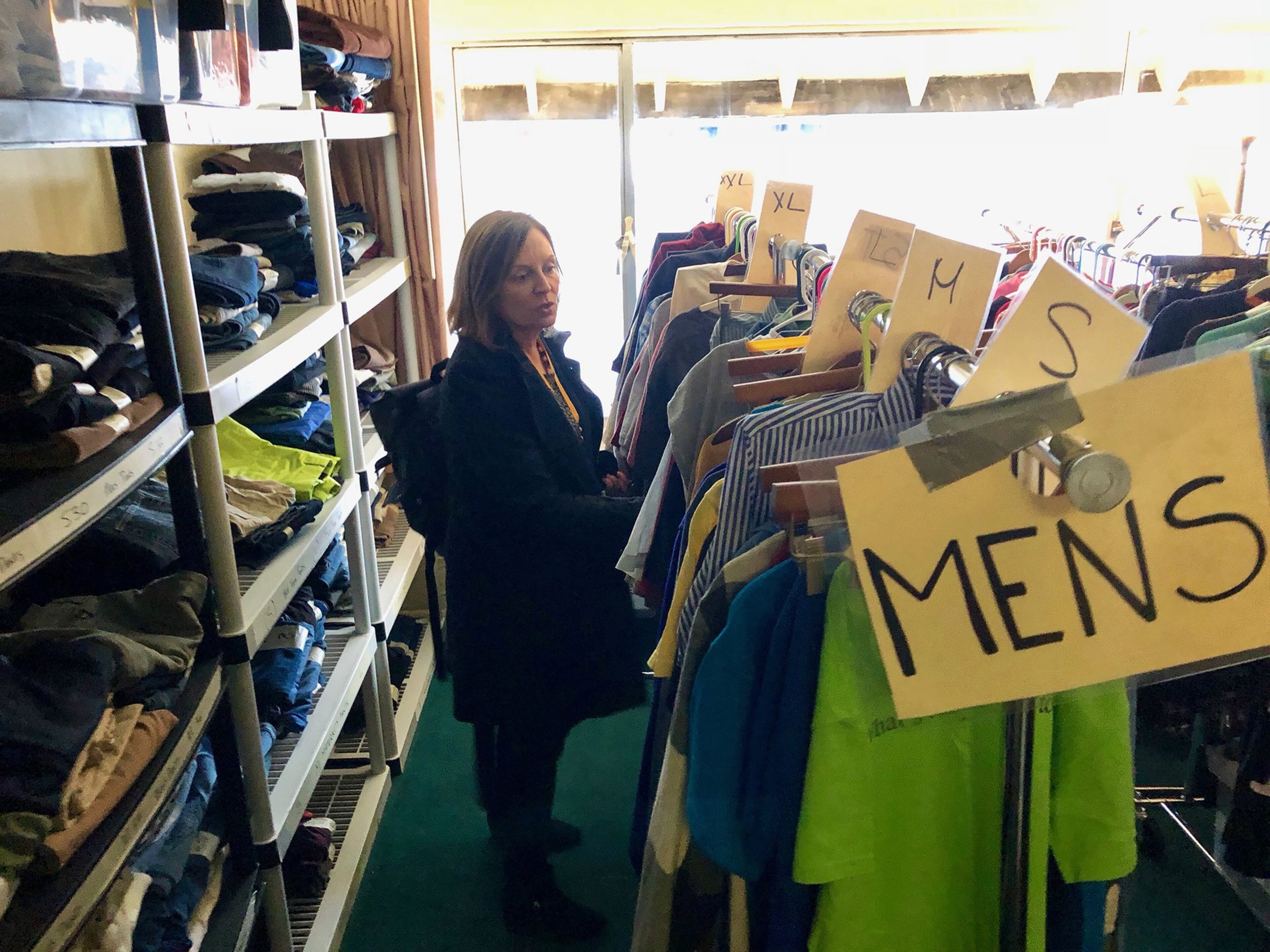
Pain in Seattle also has come with some political backlash.
City leaders recently clashed with the business community over a plan to tax large companies on their headcounts to help solve Seattle’s homeless crisis. It was aimed squarely at Amazon, but other businesses also felt targeted.
Michael Schutzler, CEO of the Washington Technology Industry Association, said local leaders blame tech companies for growing pains when the city failed to plan.
“The last three councils and the last three mayors have sat on their hands,” Schutzler said. “Atlanta, don’t make that mistake. If you should be so lucky, you need to be proactive and think about not just the infrastructure needs of Amazon’s 50,000 jobs, but the other 250,000 jobs that are going to get ramped up around it.”
Amazon threatened to halt construction of a tower earlier over the proposed tax hike, but later backed off.
The City Council approved a scaled back measure by a 9-0 vote that will generate about $50 million a year for affordable housing and to aid the homeless.
But many in the business community say Amazon hasn’t gotten the credit it deserves for helping to tackle the homeless problem.
Amazon established a unique partnership with Mary’s Place, a homeless shelter, to provide housing for more than 200 families in a facility on Amazon’s headquarters campus. Amazon donated a renovated hotel where families currently live and receive services from the nonprofit, but in a later phase of development, Amazon will build a new shelter attached to one of its main headquarters buildings.
“We’ve been hamstrung solving these problems,” McQuaid said. “They came in willing to house homeless on their campus. That’s leadership.”
Amazon visits Atlanta
An Atlanta Journal-Constitution analysis in January of the 20 finalist communities put Atlanta near the top in measures of airport connectivity, educated workforce, quality of life, diversity and business climate. Atlanta is middle of the pack for housing affordability and cost of living, though Atlanta is among the worst for traffic congestion.
The state approved a hike in the fuel tax for roads and bridges a few years ago. Atlanta voters in 2016 approved a $2.5 billion half-penny sales tax for transit expansion, and state lawmakers approved a pathway for metro counties to vote to join a regional transit network.
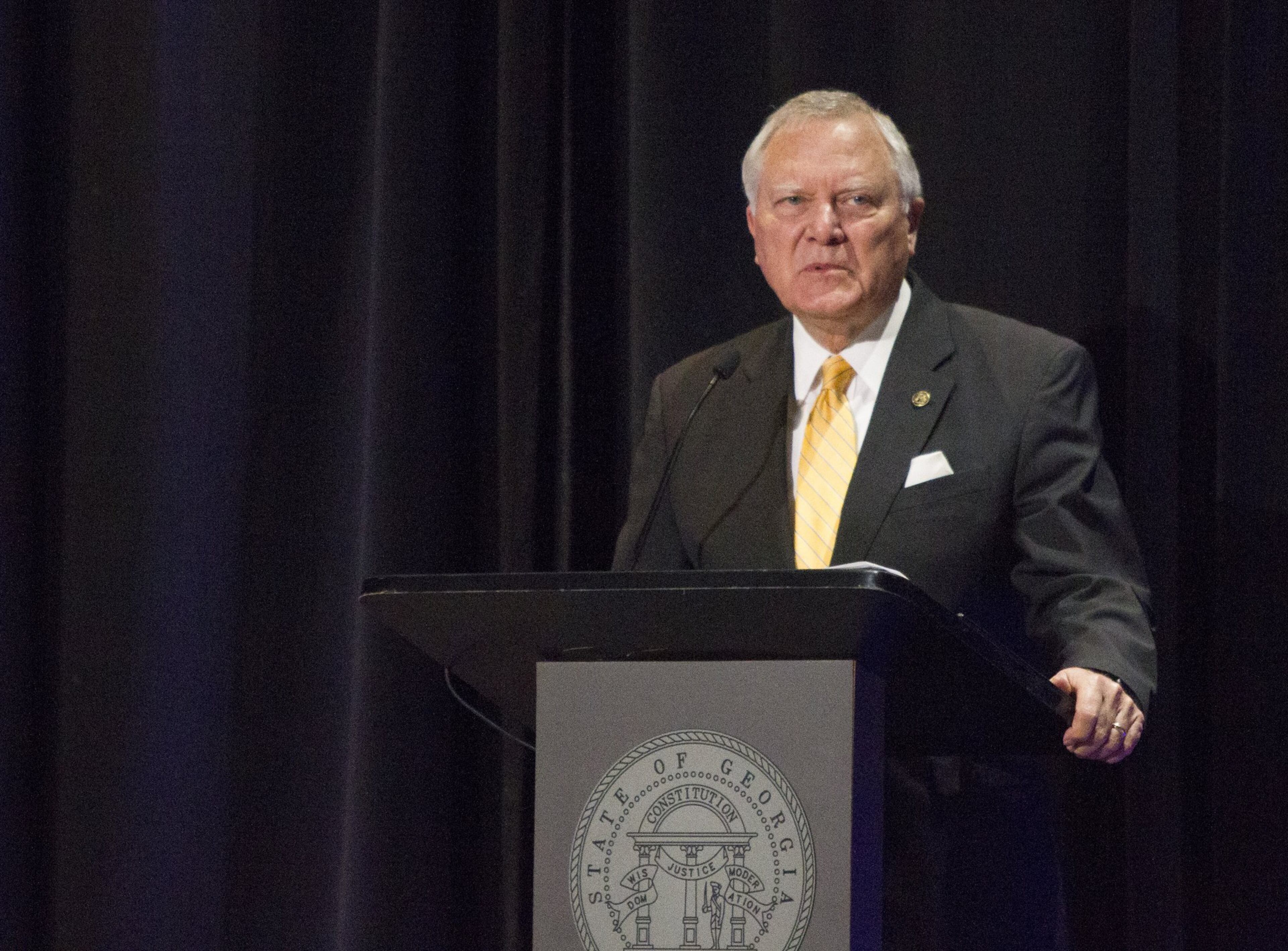
But Georgia's bid took a jolt earlier this year after lawmakers retaliated against Delta Air Lines after it ended of an NRA discount. A proposed adoption bill critics said discriminated against the LGBTQ community also generated headlines.
“The tech industry does not want to be limited on who they can hire,” Berger said. “They also don’t want to get cross-wise with their workforce, who support gay rights.”
In late March, an Amazon delegation visited Atlanta as part of the company's tours of all 20 finalists. The details of the visit are cloaked in secrecy, as is the state's bid for the company.
What is known is that Georgia leaders have offered an incentive package totaling at least $1 billion, including tax credits, grants and potential infrastructure improvements.
Observers of the company said any city and state efforts to cultivate tech talent are likely Amazon’s priority No. 1.
There's also no doubt Amazon asked about the upcoming gubernatorial election, future infrastructure programs such as the MARTA expansion in the city and the regional transit legislation, which Gov. Nathan Deal signed into law in May.
Cathy Woolard, a former Atlanta City Council president who ran unsuccessfully for mayor last year, said she doesn’t think the region is prepared for what’s to come if Amazon selects Atlanta.
In addition to the potential growth from Amazon, forecasts already call for the Atlanta region to add 2.5 million people through 2040.
“We don’t have decades,” Woolard said. “The problems are here now.”
What is HQ2?
Amazon’s push for a second headquarters is about workforce and geographical diversity for a company that’s growing like it’s still a start up, observers said.
The company has said it wants a campus that could span more than 8 million square feet of office space, rivaling what it has in Seattle today. The tech giant also wants a metropolitan area of at least 1 million people that is business friendly and capable of filling 50,000 jobs over the next 10 to 15 years.
It seeks mass transit access and sites near highways, as well as ready access to an international airport. A community that fits the culture of Amazon’s young and highly-educated workforce is also a must, the request for proposals said.
Chasing Amazon HQ2
The Atlanta Journal-Constitution has closely followed the hunt for Amazon HQ2, bringing readers details of the state’s bid, evaluating the field of finalists and covering the issues that could come with such a mammoth headquarters. Today, the AJC brings you a report from Seattle and shows the benefits and challenges that have come from the growth of one of the world’s most innovative companies.
The AJC’s comprehensive coverage
If Georgia can lure e-commerce giant Amazon with its promised 50,000 jobs, the creation of HQ2 will dramatically change the political, social and economic fabric of the state and metro Atlanta. Beginning today, The Atlanta Journal-Constitution will publish the first stories in an occasional series that will examine the benefits and challenges to this region if the Seattle-based company decides call Atlanta it’s second home.
More Stories
The Latest


